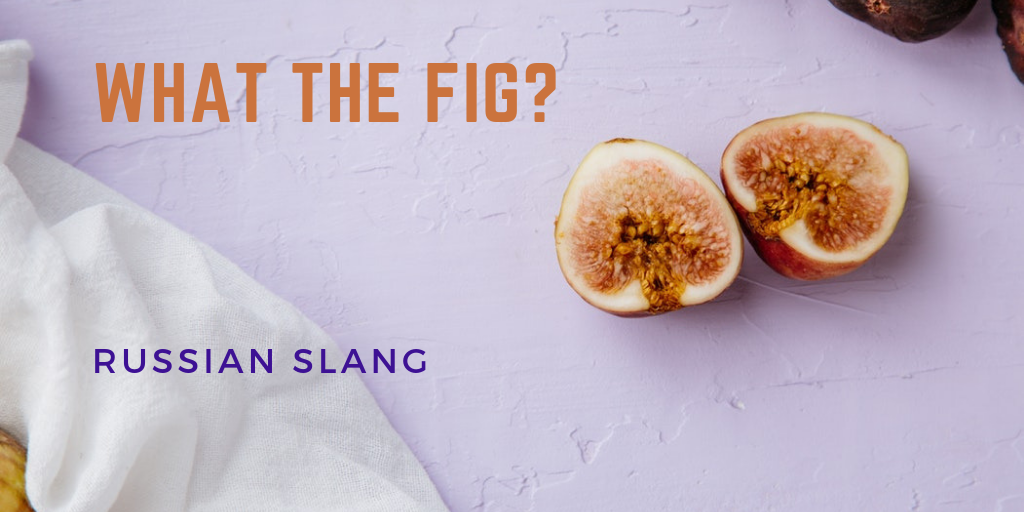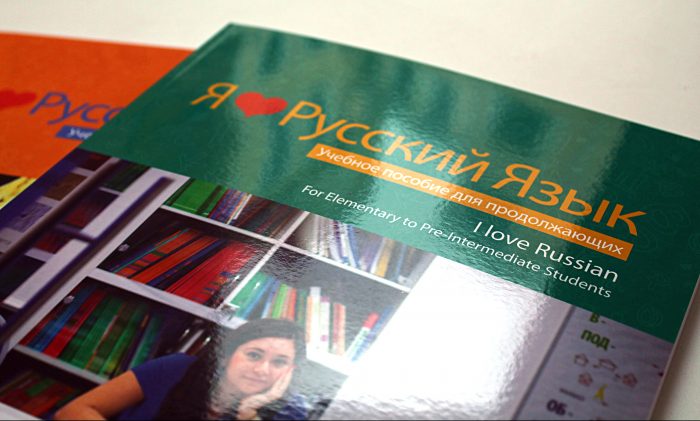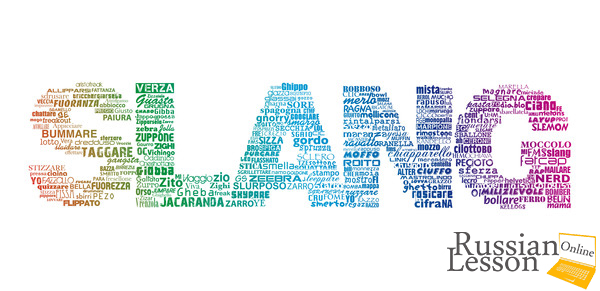
So you’ve heard some basic Russian slang words, and maybe even used some yourself. But what comes next? As you know, Russian is an incredibly rich language with flexible and logical, though complicated, morphology. Like legos, roots gain prefixes, suffixes, and then begin to decline and conjugate, often to the point where the original root is almost unrecognizable and the meaning has totally changed. This morphological ingenuity is exactly what makes Russian language so rich and difficult for language learners. Slang is no exception. So keep reading and I’ll give you an overview of some Russian slang constructions you might hear.
The family-friendly version of a very adult and gendered swear word, блин literally means “pancake” and is used to express something like “darn, damn, shoot.” Lot’s of Russians use this word frequently.
Let’s imagine Young Vovik learned his first Russian poem by heart, and it’s his time to shine. He gets up in front of his fellow first graders and Анна Григорьевна (Anna Grigorievna). His palms are sweaty, knees weak, arms are heavy. There’s ketchup on his sweater already. He begins, “Мороз и солнце; день…” he clears his throat and tries again. “Мороз и солнце; день…” Блин, забыл. Дурачок. Shoot, he forgot, the little fool.
These words have some slight differences, but they can all be used to punctuate your listening, like ‘cool’ or ‘awesome.’ If your conversation partner is telling you an interesting story about that time they hung out with a capybara for a day, you could use these. If you’d like some more literary options, you can say чудесно or великолепно.
These words can also be used not just as discourse markers, but also utilized as adjectives.
Классый/ая, for example, is an all-purpose positive adjective to mean ‘cool’ or ‘awesome.’ Классный фильм (It’s a cool movie.) Ты мне нравишся — ты классная (flirtatious: I like you. You’re cool). As an adverb, классно, means ‘well’ in an awesome sort of way. Мы классно съездили в Грузию (We had an awesome time in Georgia).
This one means ‘dude,’ dude. Классный чувак = cool dude. According to Russian Google, this word derives from the Gypsy word for human. Sometimes this word is used in plural to mean ‘guys’ in the sense of ‘multiple youngish male people.’ Ты заметила сколько чуваков носят длинные волосы?
This one means “Let’s go.” It’s the past “they” form of the verb погнать which means to chase after or to go quickly towards. Why do we say погнали in the past? Multiple explanations exist. Perhaps it’s because it’s as if the decision has already been made. Vova and his young teenage friends have already been fated to leave KFC and go to the movies. So when Vova utters Ну, что чуваки, погнали? Everyone already knows. Yes, it’s пора.
Norm means pretty much what you’d think since it derives from the word ‘normal’: ‘Sounds good. Okay. Alright.” Nothing super exciting, but yea, everything’s chill. Как тебе бургер? Норм.
This one means to hang out or spend time together, usually in a lively and social setting. Пойдем завтра тусить! (Let’s hang out tomorrow). Lots of other words derive from тусить (like тусовка, тусовщики) but we’ll get there in the next post.
Кайф means a thrill, a rush, fun. Я так люблю кататься на горных лыжах — это такой кайф!
Жесть is difficult to translate precisely, but it is typically used to communicate something surprising in a bad way due to its severity or emotional coldness. Something like ‘hardcore, harsh, too much, extra, rough, or brutal.’ Ты работаешь 50 часов в недели? Это жесть.
Literally meaning horseradish, хрен is a euphemism for a very offensive Russian word. Even though хрен itself is relatively harmless, its use as a euphemism has implications and could be seen as rude in sophisticated company, so be aware.
How is хрен used? Let’s say you’re going to go to a club with your friends. One friend was supposed to meet the group at the metro at 11, but he’s nowhere to be found. You text him, call him. Nothing. 11:30 comes and goes. Still nothing. You might say, “Ну, хрен с ним. Пошли.” (Forget him. Let’s go, already.)
ХренОвый means ‘crapy’ ‘bad’ or ‘low-quality.’ Хреновый зонт (crappy umbrella).
Хрен can take the prefix “о-” and then become a verb: охренеть, which means ‘to experience very strong emotions’ often times associated with excitement or surprise. It can be positive or negative depending on context and tone. It’s something like, ‘wow, omg, holy crap, no way.’ “Ты слышала? Вова поступил в МГУ!” ‘Охренеть, он жe дурак.’ (“Did you hear? Vova was accepted to MGU!” ‘Are you kidding? But he’s an idiot.)
In text you might see the abbreviation хз (хрен знает), which means “who knows.” DO NOT TEXT YOUR HOST MOM “хз, вернусь ли я до полночи.”
Literally meaning ‘to reach,’ this word is used in a figurative sense to mean someone or something is getting to you or bothering you. It has the sense of “that’s it” or “that’s enough!” or “I’ve had it.” Комары меня достАли! (The mosquitoes are really getting to me).
Фиг, like хрен and блин, is another euphemism for a very adult and offensive swear word. Among other things, фиг is a vulgar hand gesture, made by putting the thumb between the forefinger and middle finger, which means, “not happening” or “F*** off.” In an argument, you could say Фиг тебе! (фиг кому=dative case) to tell your rival off.
Ни фигА can be used to mean “nothing at all.” Не фига не понял с сегодняшнего урока (I didn’t understand anything at all from today’s lesson.)
Ни фигА себЕ is like ничегО себЕ or, in English, “wow, holy crap, omg.” Ни фига себе такой ветер. (Jeez, this wind is really something.)
ОфигЕть is the same as охренеть, and from офигеть, we get офигЕнный (really awesome, great) and офигИтельный (really awesome, impressive), as well as офигЕвший (surprised/shocked/amazed).
Go фиг-ure.
Literally meaning to be poisoned by gas, угорать means to laugh really hard or to have an absolute blast. Мы с ним так угорАли. (We had such a blast together).
Most Russian teachers would say that this is an awful slang word, a contagious and harmful infection from English. Юзать comes from the English word “to use” and is often used about substances. Я не юзаю. (I don’t use) The accent can fall on the first or second syllable.
In English we can say “I respect Dostoevsky for his prolific output,” where respect is a verb with a direct object. But in Russian slang, we need to use респект + кому (dative) + за…, where respect is a noun being given to an indirect object. For example: Респект Достоевскому за то, что он столько книг написал. Respect takes the dative case and can’t be used as a verb. Респектнуть and респектовать do not exist, instead we either ‘throw’ or ‘catch’ it. Лови респект! (Catch respect!)
We saw прикольно as a conversational interjection to mean ‘cool’ in slang 101. As a singular noun, a прикол is a joke, often times extended over time. ЗабАвный прикОл = funny joke. ПриколОться/ прикАлываться, literally meaning to pierce/poke/pin, are the perfective/imperfective verb pair meaning ‘to joke around in good humor’ ‘to kid.’ Ты прикАлываешься сейчас? (Are you joking with me right now?).
This is another easily recognizable word to English speakers, yet Russians use it as slang in creative ways. It can be used to describe something awful or vile, but it can also be used to describe something so absurd and wild that it’s almost good. About a party, for instance, полный трэш could be desirable.
What is your favorite Russian slang expression? Did we include it? Let us know in the comment section below!
Read also: The Funniest Russian Tongue-Twisters

Students will be happy to learn that the Russian Government has today announced plans to make Russian language easier in an effort to simplify greater international engagement. …

In a previous post, we revealed that Russians don't really say “na zdarovje” when they toast. While the phrase has been popularised in English language media – and a lot of Russians will nod politely and clink glasses with you if you use it – it’s not something a native speaker would ever…

Improve your Russian while working as an expat? Mission possible! …

What could be a better way for Russian immersion than reading, especially when you read the books that you find interesting and that can give you a better idea of the culture of Russia? Co-founder of Liden & Denz, Walter Denz shares his experience on how reading Russian literature can improve your…

Learning a language is hard. Keeping it when you don't have classes is even harder. So this article is not about how to learn Russian, but how to maintain your Russian. …

Learning the Russian language can be a long, hard slog. Days, weeks, months spent poring over textbooks, attempting to understand the cases, crying over aspects, endeavouring to pronounce ы and щ. …

Many language learners desire to communicate well with native speakers of the language or those who speak it. I have always dreamt of talking more fluently and texting through social media with my Russian friends better. It is no exaggeration to say that good communication skill gives you an…

If you are already able to speak Russian, then congratulations! You are on a good way. But even if you are, let’s say, on level B2, you have probably been in situations with Russians, especially younger people, where you did not understand everything they said — either because they were speaking…